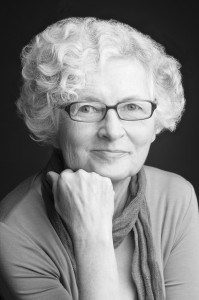1. What inspired you to write the prose poem/microfiction which will appear in Writing To The Edge?
I was in a chemist shop when I overheard an angry conversation. Toothbrushes were strewn around the floor. A wiry woman shrieked into her mobile phone, ‘Someone stole my ‘done and don’t I know who it was!’ I imagined she was trying to cajole the chemist into giving her methadone without a prescription. He had picked up her toddler to prevent the boy from kicking over a stand of toothbrushes. I went home and wrote down the scene. One sentence from that scene remains in The Man Who Walked after Work.
That week an Ikea magazine arrived in my mailbox. These magazines contain stories with lots of colourful photos of how a family, somewhere in the world, manages to overcome a housing problem with new furniture, storage containers and dinosaur toys. I read how each family solved its dilemma. Picture twenty bright-coloured solutions dangling from the ceiling in my head.
I created a nerdy chemist then picked a boring block of flats where he might live and decided where he would get off the bus after work. I walked with him: through the wetlands and parks, down along the back of a housing commission estate, past two playgrounds, along the lane with the seasonal shrine to kitsch. Then back along inner city streets, taking the long way to delay his arriving home to his empty flat. To the flat I imagined he had briefly shared with Lila, who smoked and drank while trying to get pregnant. I thought it might be interesting to have her obsessed with the safety features of an Ikea Gulliver cot. Such an unlikely couple.
I hope I left space for the reader to participate in the creativity.
2. Tell us about your process. (Do you start sparse and widen out, or do you write down every possible association and cut back? Do you research the subject matter you are writing about? Is it pure intuition?) Take us through an example if you want.
I hand write lots of short drafts of a scene, often triggered by a niggle I can’t let go of. I change the point of view, the tense, the theme, the title. I do research. I write more scenes. It gets longer. It changes and expands more when I finally type it into the laptop. I workshop it. Rewriting continues for months. I don’t know what it’s about until I’m nearly finished.
3. What advice do you have for other writers? (About the first or last line? About how to choose the title? Do you follow any rules?)
The advice I give to myself is, take the risk. You have nothing to lose but a boring story or poem.
4. Who or what inspires your writing?
Going to new places and doing new things. Learning about art and history. Reading literature. Workshopping with peers. Doing writing exercises.
5. Tell us what you do if you haven’t written anything in a while and you want to get started writing again? Could you share your favourite writing exercise with our readers?
I open a book of writing exercises. From Michael Farrell I picked up the habit of rolling dice to determine where to insert words and how many words to insert in a poem. A good source of ideas is the word combinations in cryptic crossword puzzle clues, such as Cryptic Cross-words No. 90 by Puzzle People.
In late May 2014 I’m tutoring an online course about using writing exercises to write poems. http://www.australianpoetry.org


